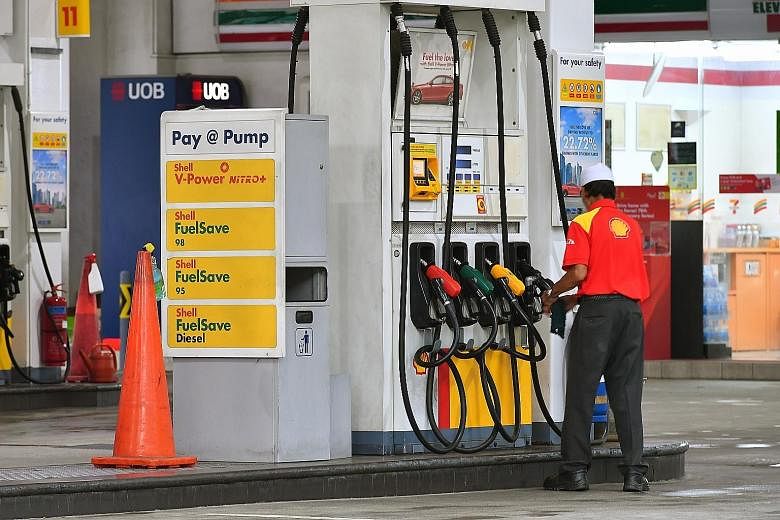There is no collusion among petrol retailers but prices can be more transparent, said the Competition Commission of Singapore (CCS) as it proposed the development of a platform to allow consumers to better compare prices.
It said it will be working with stakeholders, including petrol retailers, to develop a price comparison Web portal and/or mobile application, which could save motorists here $40 million a year.
This comes after it did a second inquiry into the petrol market. The findings were released yesterday.
A price comparison platform with various retail petrol prices and discounts will, for instance, help consumers make more-informed purchase decisions and encourage more transparent competition among petrol retailers, said the commission.
The proposal comes amid the potential entry of a fifth petrol retailer into Singapore, it added. The current four are Caltex, Esso, Shell and Singapore Petroleum Company (SPC), with Chinese giant Sinopec set to enter the Singapore market, according to media reports in October.
The CCS noted that those who monitor prices through comparison websites or mobile/tablet apps would enjoy even more discounts, compared with those who monitor prices through conventional means such as on-site displays or petrol retailers' websites.
-
$40m
-
The amount motorists could save each year with a price comparison Web portal and/or mobile application.
"Discount and rebate schemes are complicated and make price comparison difficult for consumers," it said. "If information on effective prices, that is, retail prices net of petrol discounts and rebates, was made simpler and available, consumers would be able to effectively compare prices and make more-informed petrol purchase decisions."
The commission's second inquiry into the petrol market began in February 2015, when the price of crude oil declined from US$115 a barrel in June 2014 to a low of US$46 in January 2015.
Back then, the commission received feedback that retail petrol prices had not fallen in tandem with crude oil price declines.
The inquiry was conducted with input from petrol retailers, industry experts and motorists.
The CCS yesterday said petrol retailers differentiate their prices through the use of discounts. It noted that while listed retail prices are similar, prices could be lowered by 5 per cent to over 20 per cent with various discounts and rebates offered under loyalty programmes.
Thus, there is high brand loyalty among consumers, the inquiry found, with 58 per cent of consumers surveyed not switching petrol brands between 2012 and last year. Only an average of one in five compared prices, the survey found.
The inquiry also said that there should be greater awareness about using the correct octane grades, as the survey showed that 63 per cent of motorists purchased a higher grade of petrol than needed.
When contacted, Shell, SPC and ExxonMobil said they are studying the findings from the CCS.
A spokesman for ExxonMobil, which sells the Esso brand of fuels, said it is looking into how it can incorporate the recommendations.
An SPC spokesman said pump prices at its service stations are in line with prevailing market conditions. "We monitor the market regularly and will periodically review and adjust prices and promotions to reflect market conditions and to offer competitive pump prices to the motoring public."

